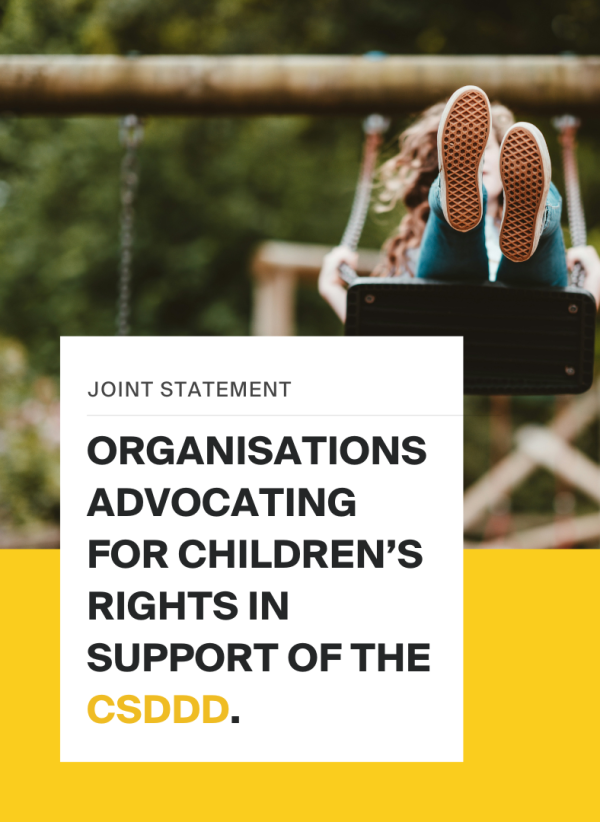This website uses cookies so that we can provide you with the best user experience possible. Cookie information is stored in your browser and performs functions such as recognising you when you return to our website and helping our team to understand which sections of the website you find most interesting and useful.

ECCJ has joined a coalition of NGOs in calling for the Commission’s proposal for a corporate sustainability due diligence law to be clarified and strengthened in the areas of corporate governance, including climate change and finance.
As part of its strategy to implement the European Green Deal and the Action Plan on Financing Sustainable Growth, the European Commission presented its proposal for a Corporate Sustainability Due Diligence Directive.
According to the EU Commission, one of the five objectives of the directive is “improving corporate governance practices to better integrate risk management and mitigation processes of human rights and environmental risks and impacts, including those stemming from value chains, into corporate strategies”.
However, the proposal initially referred to as ‘Sustainable Corporate Governance’ has been presented with only a few elements to foster integration of sustainability and long-term thinking in corporate governance rules. It is important that corporate governance keeps pace with sustainable finance and civil society demands.
Together, ECCJ and partners are calling on the member states in the Council as well as the European Parliament to improve the proposal text according to the following elements, in order to ensure the overall effectiveness of the final legislation:
- Clarify and strengthen the obligation of directors’ to oversee the due diligence process and ensure the effectiveness of due diligence
- Clarify and strengthen directors’ obligations with regards to climate change mitigation
- Align directors’ incentives (renumeration) with sustainability objectives and outcomes of due diligence
- Fix the proposal’s coverage of the finance sector to ensure key financial actors are covered and that the scope of their due diligence obligation is not restricted
This paper specifically addresses the parts of the proposal that relate to corporate governance and directors’ obligations, as well as to the responsibilities of the financial sector. It intends to complement the analysis on the due diligence aspects.
The full five-page briefing with elaborated recommendations and evidence is available for download.












